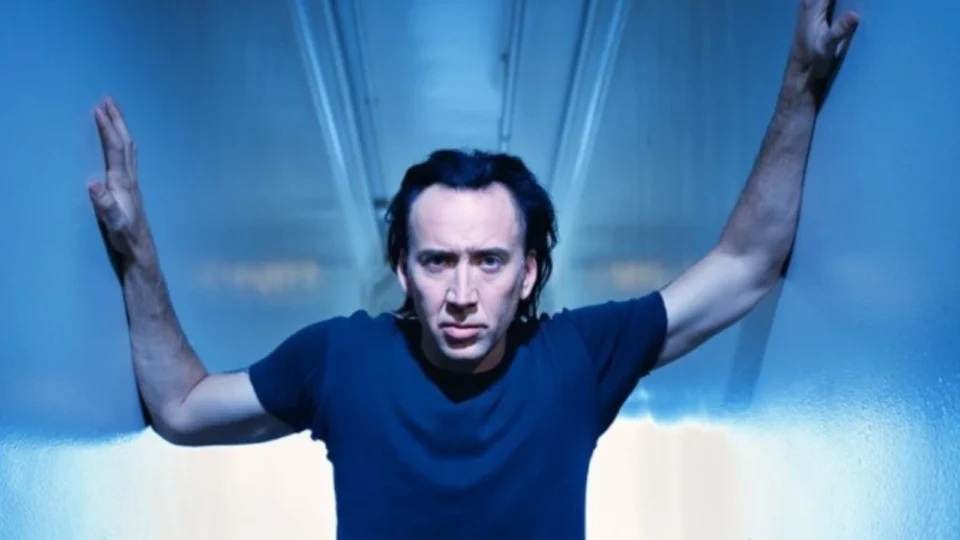At the 52nd annual Saturn Awards, Nicolas Cage delivered an impassioned speech that not only recognized the brilliance of his film Dream Scenario but also raised critical concerns about the future of acting and creativity in the age of artificial intelligence (AI).
Receiving the award for Best Actor for his role in Dream Scenario, Cage used the moment to passionately argue against the increasing intrusion of AI in the arts, particularly in film and acting. His comments have sparked a larger conversation about the intersection of technology, human creativity, and the future of art.
Table of Contents
The Voice of Authenticity in Art
Cage’s acceptance speech was more than a moment of gratitude. It was a heartfelt critique of the growing influence of AI in artistic spaces, particularly in acting. He opened by thanking director Kristoffer Borgli and the Dream Scenario team for their contributions, calling it one of his favorite projects. But then, with the same fervor that has characterized his eclectic career, Cage expressed his deep concerns about the future of human creativity.
“There is another world that is also disturbing me,” he said, drawing a stark contrast between the world of Dream Scenario and the real-world threat of AI encroachment. “It’s happening right now around all of us: the new AI world.” For Cage, the rise of AI in creative industries, especially in film, represents a profound threat to the essence of what art is meant to do—reflect the human condition.
Robots Can’t Dream, Reflect, or Capture Humanity
Cage’s remarks about AI are not merely a defense of traditional artistry, but a pointed warning. He strongly believes that AI, for all its advancements and abilities, cannot replicate the human experience. “I am a big believer in not letting robots dream for us,” Cage stated emphatically. “Robots cannot reflect the human condition for us.” He went on to elaborate that allowing AI to play even a small role in an actor’s performance would lead to a slippery slope, where the integrity of the art would eventually be compromised for financial gain.
At the heart of Cage’s argument is the belief that art, including film performance, is a deeply human endeavor. The job of the artist, as he sees it, is to hold up a mirror to both the external and internal stories of the human experience. Through a process of emotional and thoughtful recreation, artists bring to life stories that resonate with others on a deeply personal level. But, according to Cage, this can never be achieved by a robot. “If we let robots do that, it will lack all heart and eventually lose edge and turn to mush,” he warned.
Cage is not just concerned about the quality of art when it is influenced by AI, but about the very soul of the creative process. He fears that the infusion of AI into the artistic world could ultimately strip away the emotional depth, authenticity, and passion that make human-generated art so compelling. “There will be no human response to life as we know it. It will be life as robots tell us to know it,” Cage asserted. This dystopian vision of a world where human creativity is replaced by automated processes is one that has captured the imaginations of many, especially in the entertainment industry, where the potential for AI to alter the creative landscape is increasingly seen as a real threat.
Check also: Google Gemini and the Race to AI Supremacy in 2025
What Makes Us Truly Alive?
Cage’s call to protect the authenticity of artistic expression is rooted in a deeper philosophical stance about the human condition itself. In his speech, he implied that one of the most profound purposes of art is to explore the range of human emotions, experiences, and existential truths that define what it means to be alive. Acting, as Cage sees it, is not merely about performing; it’s about tapping into the core of what it means to be human.
Film, for example, allows actors to embody characters who experience joy, sorrow, fear, love, and countless other emotions that are universal to the human experience. These performances create connections with audiences that transcend mere entertainment, providing a mirror for people to reflect on their own lives. Cage’s argument is that AI, despite its impressive ability to simulate human behavior and emotions, lacks the lived experience that makes such performances meaningful.
By allowing AI to take an active role in creative fields, Cage fears that we risk reducing art to a mechanical process devoid of the raw emotional power that makes it resonate with people. “Protect yourselves from AI interfering with your authentic and honest expressions,” Cage cautioned, urging both artists and audiences to safeguard the human element in all forms of creative work.
